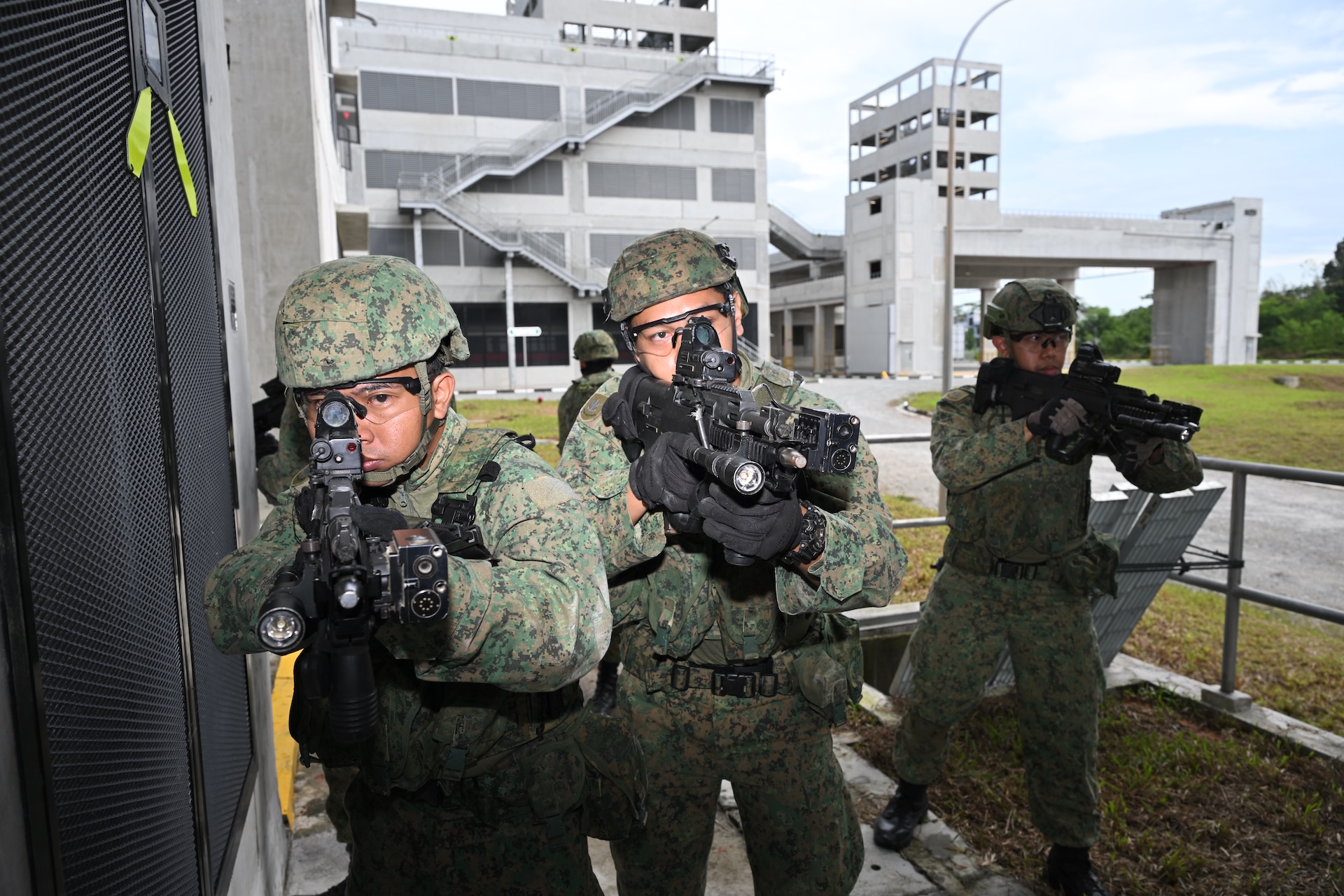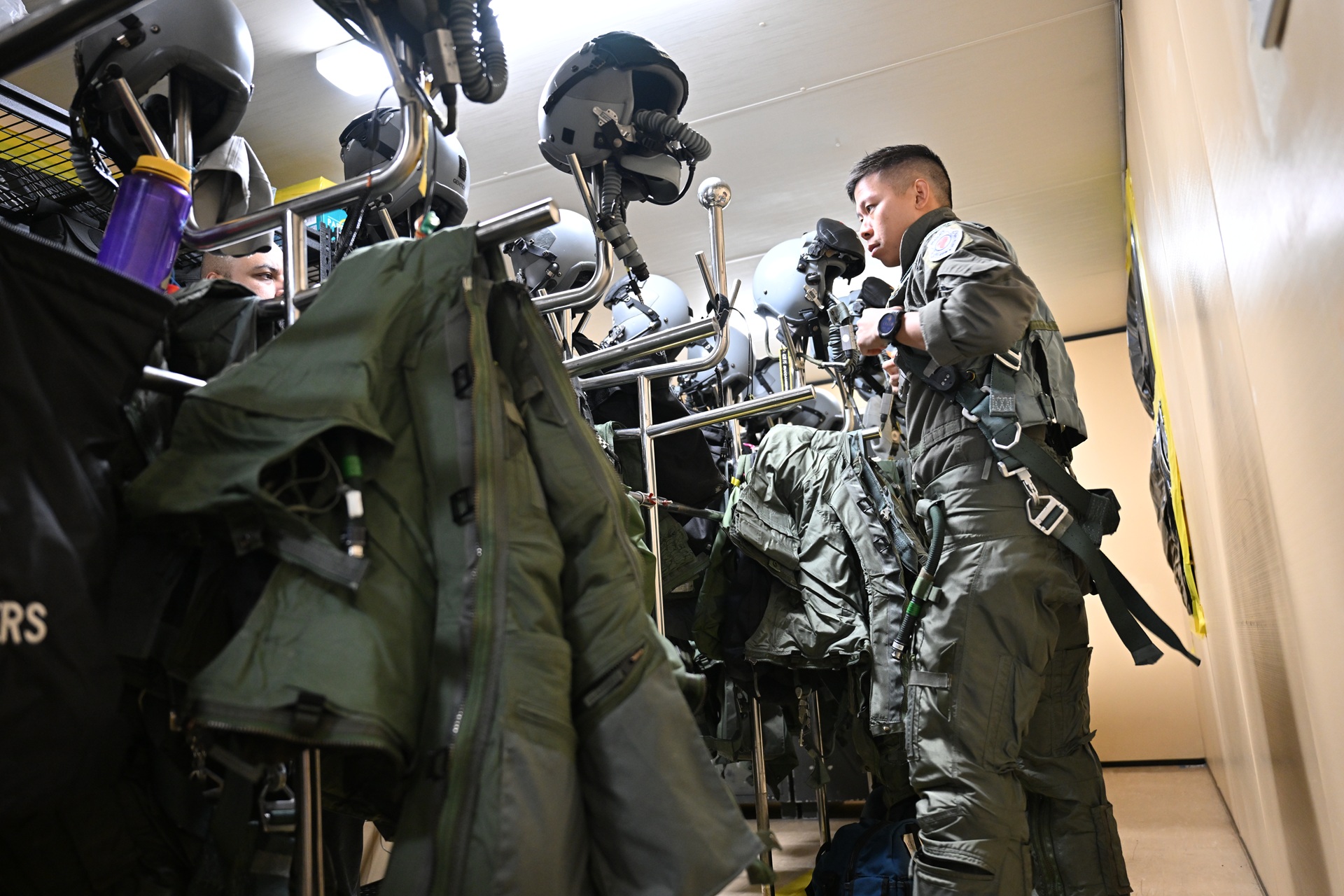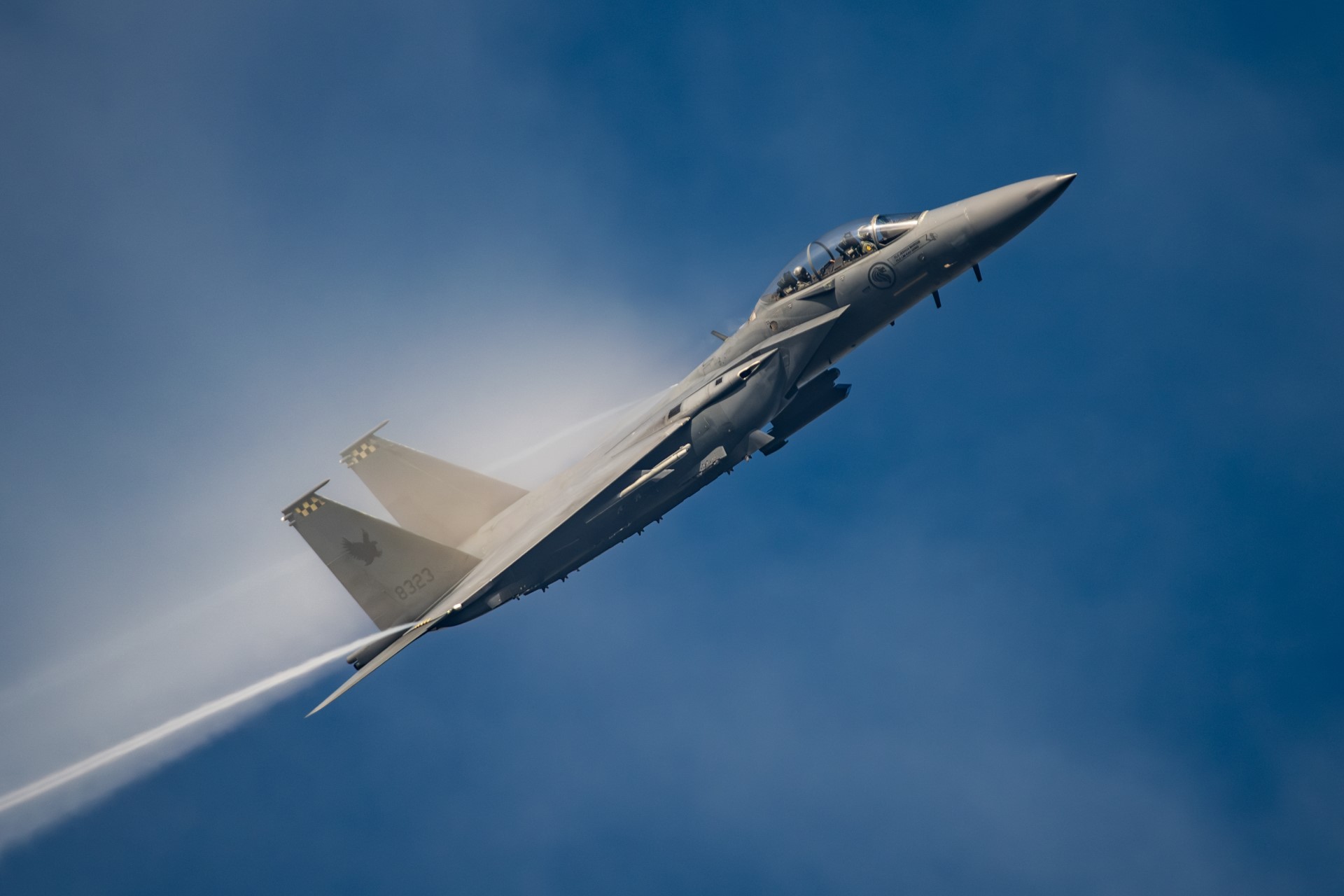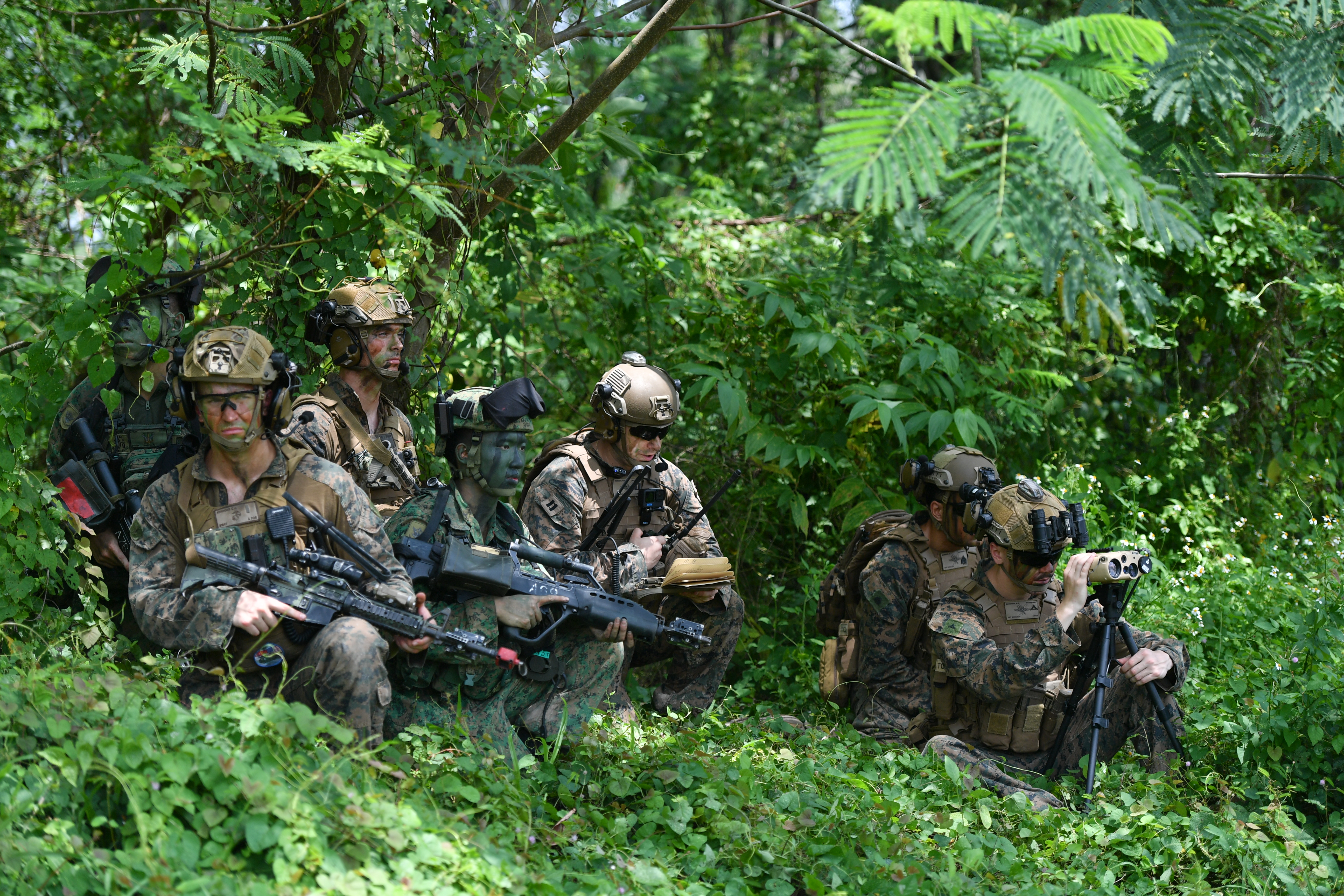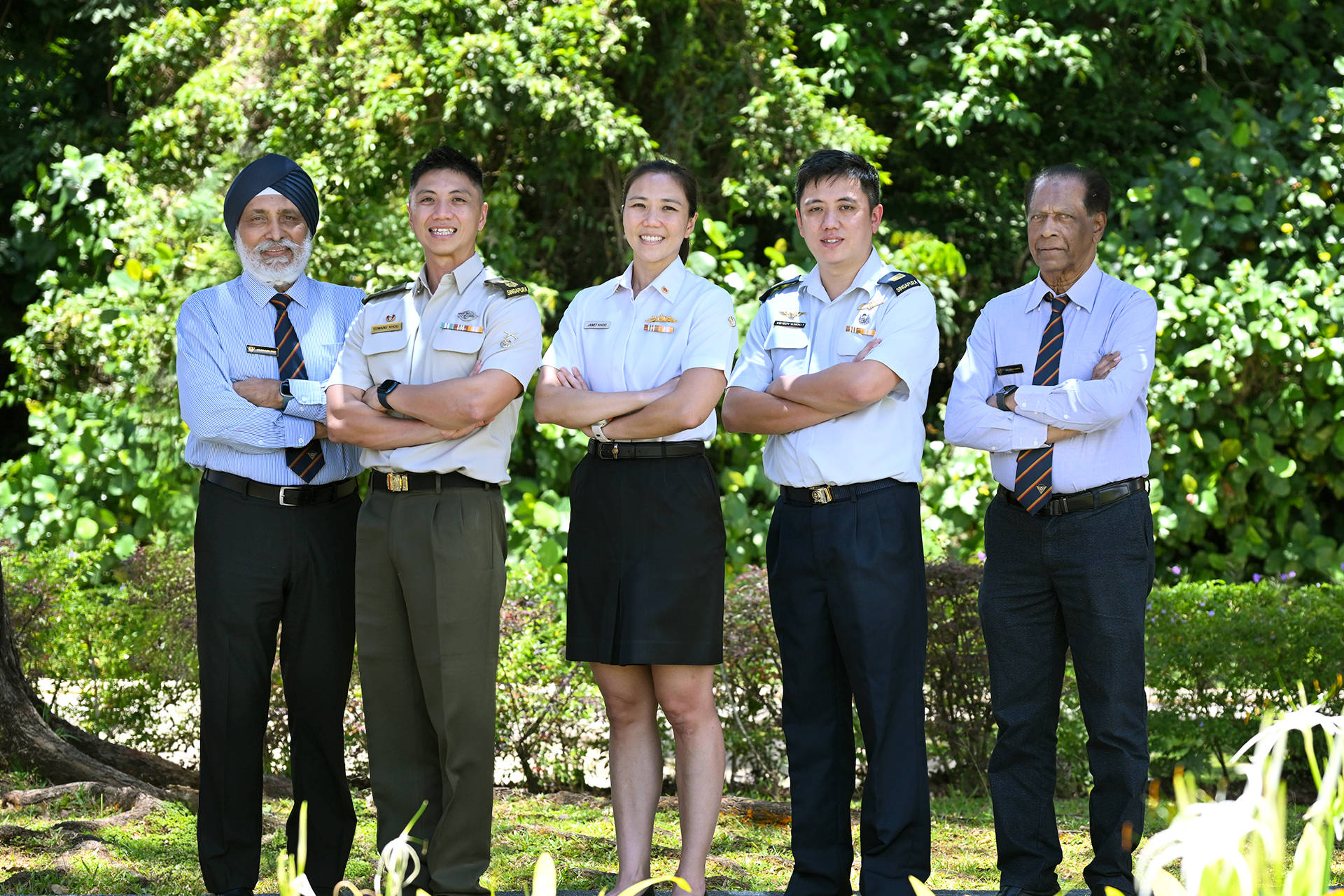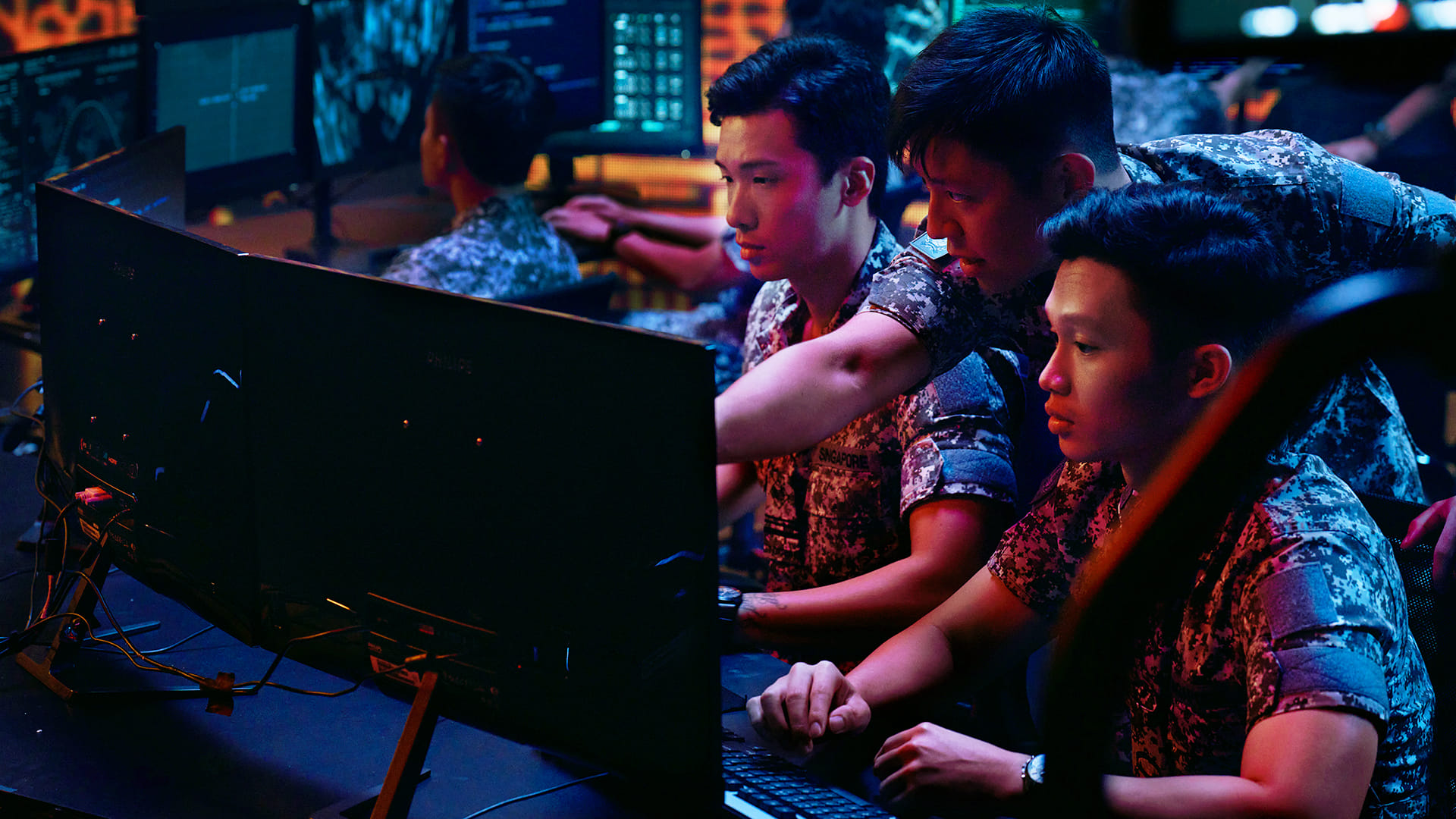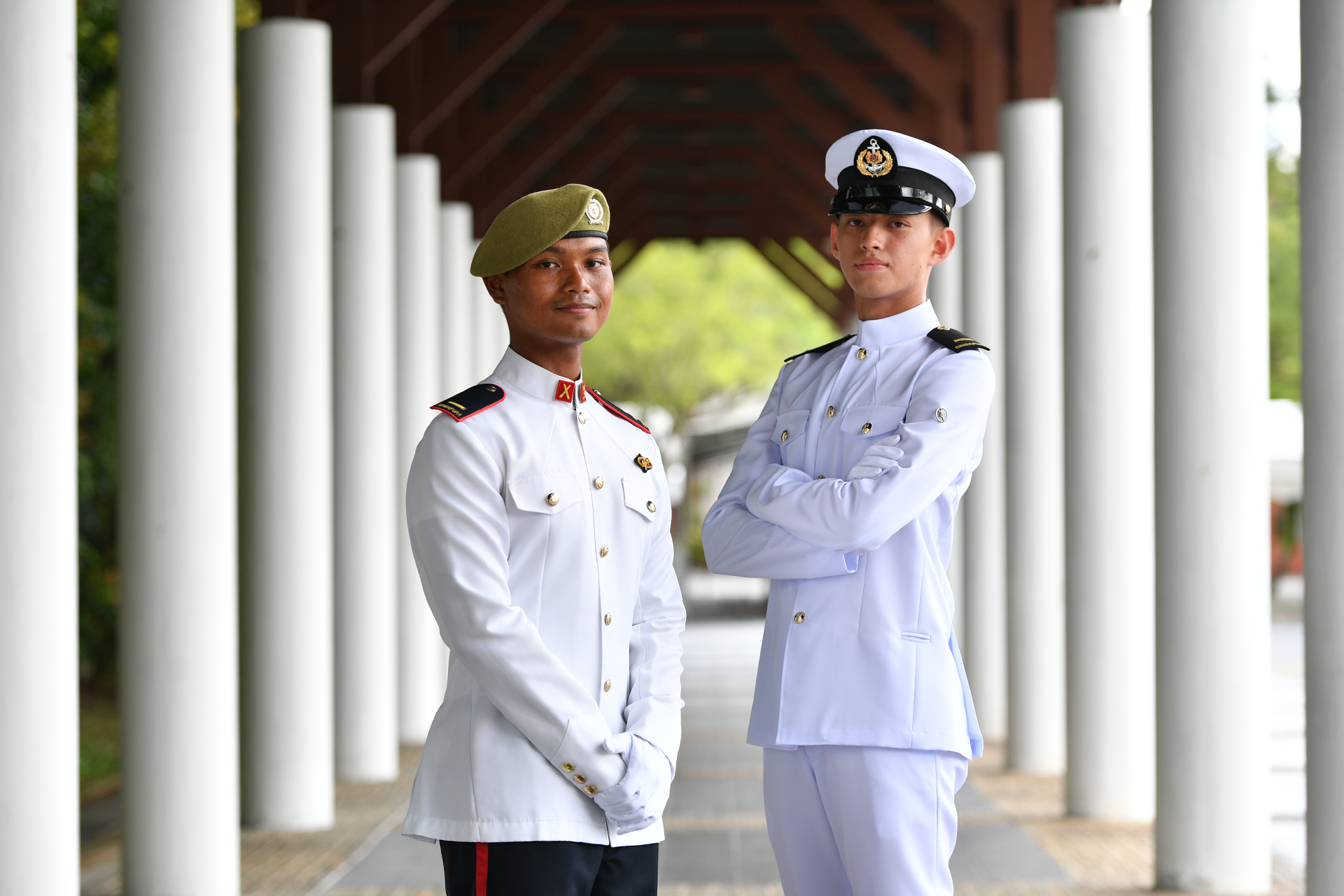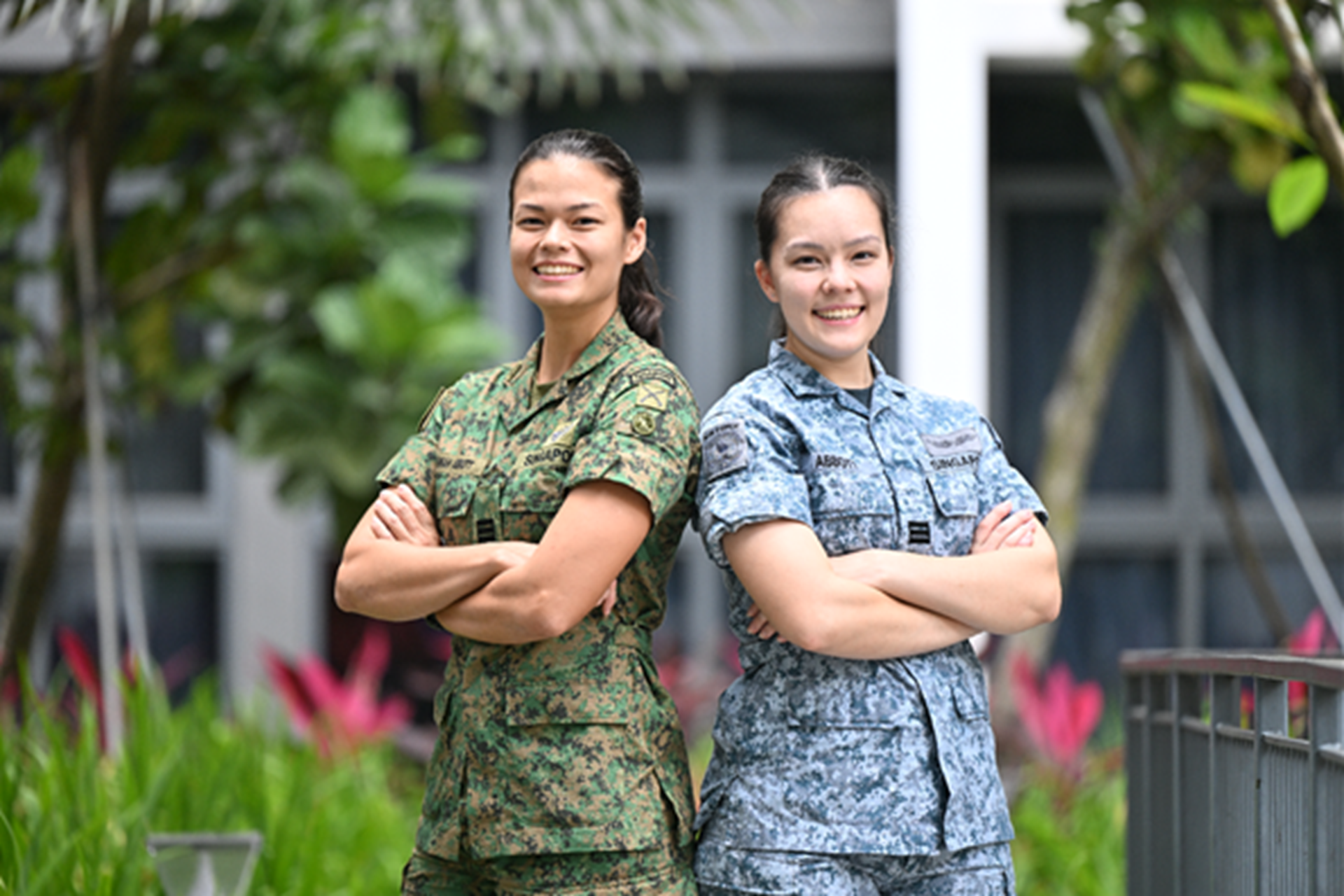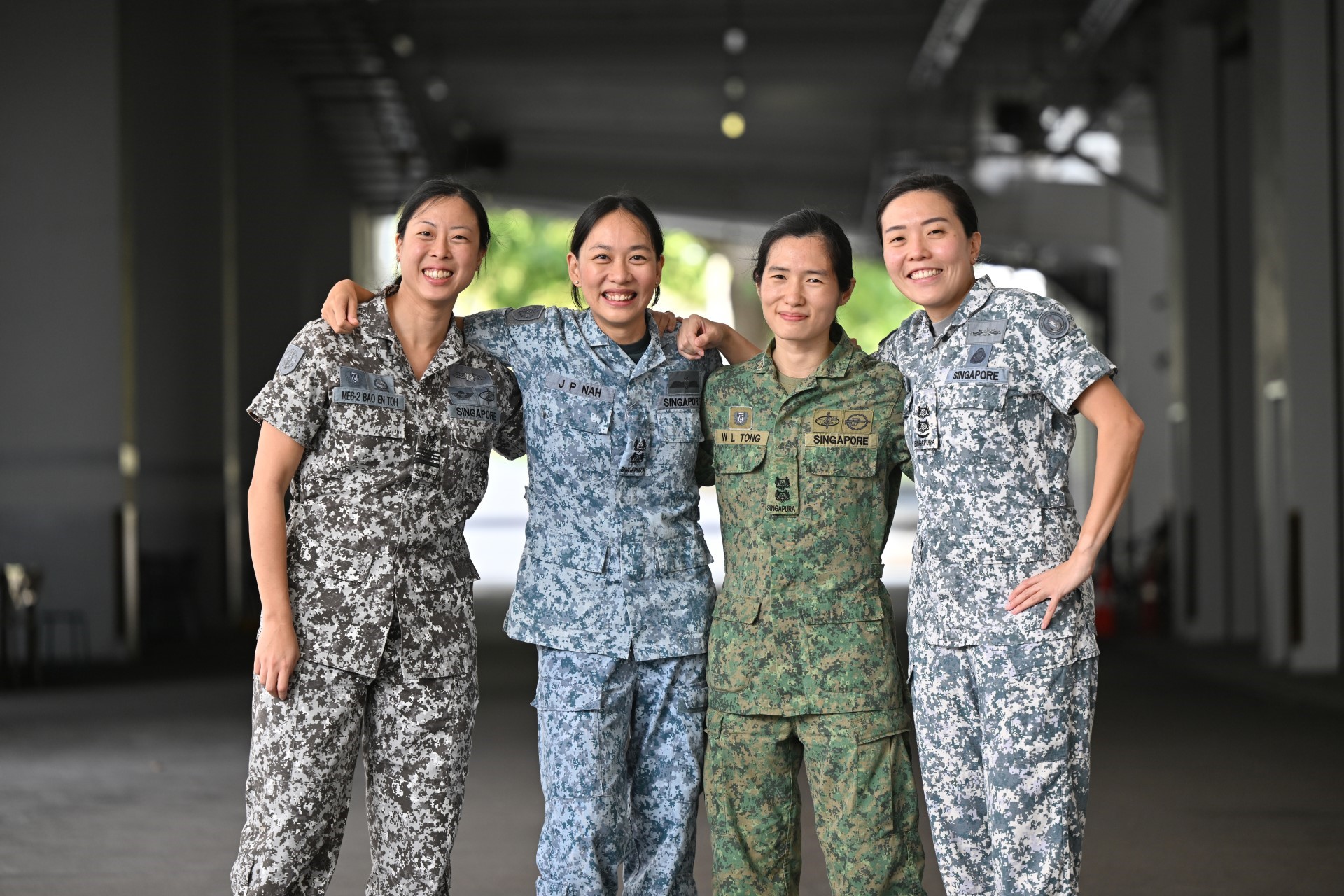MEDICAL DIRECTOR, DOCTOR & NSMAN
// Story by Teo Jing Ting
// Photos by Chai Sian Liang & Courtesy of COL (Ret) (Dr) Mak
He's been a familiar face onscreen for the past two years in Singapore. During the height of COVID-19 pandemic, Colonel (COL) (Ret) (Dr) Kenneth Mak was providing almost daily updates on measures, numbers and plans to combat the outbreak.
As the Director of Medical Services (DMS) in the Ministry of Health, the associate professor was faced with the daunting task of advising the Multi-Ministry Taskforce and other governmental agencies in crafting the overall strategy for managing the pandemic – a role which lasted two-and-a-half years and counting.
During this tough time, the 56-year-old trauma surgeon was thankful for the Singapore Armed Forces' (SAF's) efforts in combating COVID-19, as well as the relationships and network that he formed throughout his National Service (NS).
"When working with the SAF (in the COVID-19 operations), I found myself interacting with friends and colleagues I would normally be talking to in the context of NS. That made the conversation easy – sometimes, just a handshake or a quick talk in the corridors, and you know things were going to be done."
Colonel (COL) (Ret) (Dr) Mak has served in the SAF as an Operationally Ready National Serviceman (NSman) for 27 years.
His NS roles included being a deputy division medical officer in Headquarters 3rd Division (HQ 3 Div) from 1994 to 2000. He was subsequently seconded to HQ Armour in 2001 and eventually became Commander of the logistics support group.
In 2020, COL (Ret) (Dr) Mak became Chief of Staff in HQ Combat Service and Support Command (CSSCOM), which he relinquished in early 2021.
Find out why this father-of-three extended his NS cycle twice despite juggling a busy career and what he misses most about being an NSman!
COL (Ret) (Dr) Mak, you mentioned that your NS experience helped you in managing the pandemic?
COL (Ret) (Dr) Mak: NS taught me the importance of being resilient. While we usually just do what is required of us in our roles and vocations, we sometimes have to deal with challenges and issues that span beyond those domains.
That's when you develop a certain flexibility – no matter what the issues are, you're able to take things in stride and try to solve the problems as they come.
This willingness to embrace different challenges that are out of my comfort zone greatly helped me in managing the (COVID-19) crisis.
Can you share more about your NS experience?
COL (Ret) (Dr) Mak: I've had the privilege of experiencing two different formations in the army – HQ 3 Div and HQ Armour – and I've come to appreciate how complex the SAF is. My roles also changed over time – I started out as a medical officer and subsequently handled logistics operations.
I've been given lots of opportunities to do different
things in the Army, like going for overseas training and exercises in
Australia as well as attending medical conferences in Germany and South
Africa.
You've had a very eventful NS journey! So what were your most memorable experiences?
COL (Ret) (Dr) Mak: Each appointment has its own defining moments and milestones, but the greatest joy and satisfaction I had was working with units on the ground. When I was in HQ 3 DIV, the training was always high tempo as we had a lot of local and overseas exercises. And when I was thrown in the thick of things and working with my fellow soldiers, I became very close to the team.
That bond continues even to this day. We still keep in touch with each other through Whatsapp chat groups, but physical meetings are few and far in between because everyone's so busy. (laughs)
So I assume what you will miss most about NS are the bonds with your friends?
COL (Ret) (Dr) Mak: Definitely! As a
full-time national serviceman, I was just focused on my ORD
(Operationally Ready Date). When I become an NSman, I realised I was
doing things more for my bros who were working alongside me. Working
together as friends and buddies from all walks of life made NS very
enjoyable.
Is that also why you extended your NS cycle twice – in 2008 and 2016?
COL (Ret) (Dr) Mak: (laughs) I've got friends and colleagues who have asked me why I spent so long in NS! But, honestly, it was never was a mindset of waiting for that 10 years of NS cycle to pass.
Each time a new milestone came, there were new opportunities given for me to contribute – that was the driving reason I stayed so long and moved from one formation to another. 'Cos each time I did, there were new and meaningful challenges, and that made me happy to step up and do my part.
Was it hard to juggle between your work and NS commitments?
COL (Ret) (Dr) Mak: It wasn't easy at the beginning but I was very fortunate to have supportive and like-minded bosses, especially since I was taking on the role of a NS commander.
NS commanders do a lot more than you might think, as we plan the whole training roadmap for our unit. We have meetings at the higher HQ level and with our own command team. We also work with our sub-units to coordinate the training; and when the soldiers come in, we have to make sure that they are properly looked after.
During In-Camp Training, we tend to be the first in and last out because we want to make sure that everything is done properly. So when your boss understands the journey that you take on, it's very helpful and I'm grateful for that.
How about your family?
COL (Ret) (Dr) Mak: Honestly, there were times I wish I spent more time with my family. As a surgeon, I also had to spend long hours in the hospital.
So I'm grateful to my wife for being understanding and giving me space to do all these pursuits in my career as well as NS journey. She was initially a teacher but when the kids came, she became a full-time homemaker. She's very supportive and understands the commitments of NS, so I'm very thankful to have her.
Now that you've relinquished your NS commitments, are you still involved with the SAF?
COL (Ret) (Dr) Mak: Since 1992, I've been involved with organising, being an instructor and now course director for the advanced trauma life support courses that the SAF has been running to train doctors to better manage trauma.
In the last five years, I've also been a member of the Medical Advisory Board, one of the specialist advisory boards that SAF volunteers can contribute to – so the answer's "yes"!
This year is also NS55. How do you feel about commemorating 55 years of NS as well as the importance of NS?
COL (Ret) (Dr) Mak: Each time there's a milestone like this, I've been struck by how NS is such a strong family network. It's a sharing of experiences and stories for the next generation.
We try to interest and explain to these young NSmen the heritage they have to protect and the values that drove their predecessors to do so, in hope that they will continue this legacy.
Looking back, I realised that I've learnt a lot more about NS as an NSman and that NS is the bedrock of the military. We are a citizen army – NSmen take on many different roles in the military and provide a sense of stability to the organisation because we often stay in units longer than Regulars and the institutional memory resides with us.
We know how things were done and the commitment of making sure that standards continue to improve from stage to stage also rests with us.
So I really appreciate that the SAF respects the fact that many of us have parallel journeys – our civilian lives and NS commitments – but can still continue to contribute in many rich and diverse ways.

